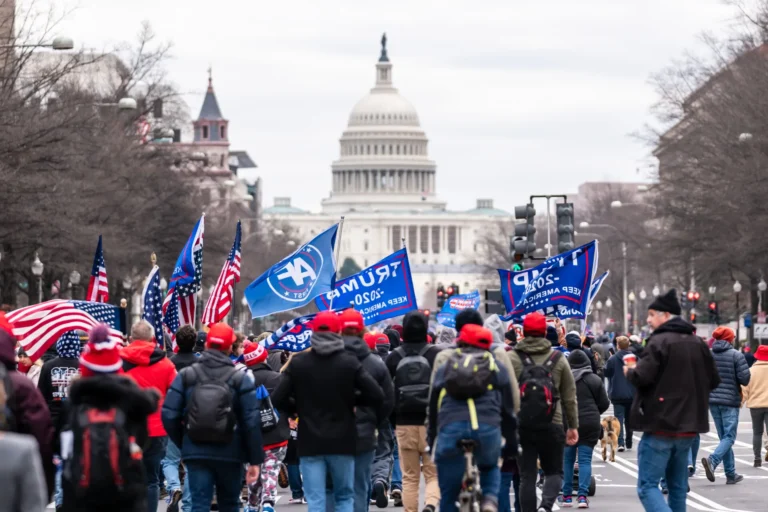By Cliff Montgomery – Sept. 26th, 2014
A few weeks ago on Meet The Press, President Obama declared he was “preparing the country to make sure that we deal with a threat” from the Islamic State (IS, also referred to as ISIS or ISIL).
Obama’s recent speech about IS to the United Nations General Assembly seemed designed to do just that. The president was keen to portray himself as a man ready to lead his nation into what may prove an open- ended war, against a rather insignificant number of wild-eyed religious fanatics.
“The only language understood by killers like this is the language of force,” Obama told the assembly. “So the United States of America will work with a broad coalition to dismantle this network of death.”Bold words to be sure. There’s only one problem…
“The Department of land Security (DHS) has assessed that the terrorist group known as the Islamic State (IS, previously referred to as ISIS or ISIL) currently poses no specific or credible threat to the homeland,” a document from the Congressional Research Service (CRS) pointed out on Sept. 19th.
“The Director of the National Counter-terrorism Center (NCTC), Matthew G. Olsen, has also noted that, ‘any threat to the U.S. homeland from these types of extremists is likely to be limited in scope and scale,’ perhaps involving individuals acting without specific IS direction,” continued the little-known federal assessment.
CRS is a branch of the Library of Congress it provides expert research and analysis on national policy issues to senators and House members. Its assessment of the actual threat IS poses to the United States may be some of the most sober official words one may find on the subject.
Below, The American Spark proudly offers to its readers the entire short analysis from CRS:
“The Department of land Security (DHS) has assessed that the terrorist group known as the Islamic State (IS, previously referred to as ISIS or ISIL) currently poses no specific or credible threat to the homeland.
“The Director of the National Counter-terrorism Center (NCTC), Matthew G. Olsen, has also noted that, ‘any threat to the U.S. homeland from these types of extremists is likely to be limited in scope and scale,’ perhaps involving individuals acting without specific IS direction.
“In this vein, policy makers continue to voice concerns about American IS fighters who may leave Syria or Iraq, return to the United States, and strike targets on their own at home.
“This CRS Insight offers a framework for considering the challenges to domestic security posed by American IS fighters and outlines some of the ways that U.S. law enforcement responds to such challenges.
“Foreign Fighters are American citizens, legal permanent residents, or aliens who radicalized in the United States and plotted to or traveled abroad to join a foreign terrorist group.
The Challenges
“There is scant publicly available information on Americans fighting for the Islamic State. However, the Islamic State and its American acolytes may conceivably present at least three broad challenges for domestic law enforcement. These challenges involve handling:
·The Departed. A few Americans, often described as foreign fighters, have left the United States to fight for the Islamic State. About 100 people from the United States have joined factions—not just the Islamic State—fighting in the Syrian civil war.
·The Returned. These are American foreign fighters with terrorist training and/or battlefield experience who may come back to the United States, where they can potentially plan and execute attacks at home. [But] There have been no public reports of Americans (or others) who fought with the Islamic State coming back to the United States and conspiring to commit acts of terrorism.
This challenge for U.S. law enforcement also potentially includes fighters who radicalized in and originated from other countries—particularly Western nations—and may enter the United States when done fighting abroad.
·The Inspired. The fighting in Syria and Iraq has spawned propaganda that may stir some Americans to plot attacks at home without ever leaving to fight abroad. Promoting the cause— propaganda—is central to terrorism. IS members appear adept at harnessing social media to spread their message, among other means. There have been reports that the Islamic State has an American helping to organize its social media output.
The group has been described as ‘extremely tech- and media savvy,’ dispersing varied propaganda materials and while much of this work has been geared at drawing recruits into the fight in Syria and Iraq, it may also inspire people in the United States to radicalize and strike at home without venturing abroad.
Responding to the Challenges
“It seems that the domestic threat potentially presented by IS—the departed, the returned, and the inspired—largely requires identifying individuals who pose a danger and preempting their attempts to harm the homeland. A number of important federal identification and preemption efforts in the counter-terrorism arena are described below.
Identifying Potential Terrorists
“The federal government’s terrorist watchlisting process plays a key role in tracking people suspected of having ties to IS. When federal law enforcement or intelligence agencies identify someone known or reasonably suspected of terrorism, they are required to share that information to create a federal consolidated watchlist of known or suspected terrorists.
“The watchlist supports ‘the ability of front line screening agencies to positively identify known or suspected terrorists trying to obtain visas, enter the country, board aircraft…’
Preempting Potential Terrorists
“Preemption of possible IS terrorist activity by U.S. law enforcement can be broadly described in terms of:
·Interdiction. This involves—among other things—stopping a suspected terrorist from entering the United States. For example, within DHS, components such as Customs and Border Protection draw on information from the federal government’s consolidated terrorist watchlist in intelligence-driven, layered screening geared toward mitigating the risk posed by travelers destined for the United States.
DHS Secretary Jeh Johnson has broadly alluded to U.S. coordination with allies on foreign fighters. In an August 29, 2014 press release, he noted:
This government, in close collaboration with our international partners, has … taken a series of steps to track foreign fighters who travel in and out of Syria, and we are contemplating additional security measures concerning foreign fighters. Some of the security measures will be visible to the public and some understandably will be unseen.
Johnson has also mentioned enhanced screening at select overseas airports.
·Investigation largely focuses on Joint Terrorism Task Forces (JTTFs) led by the Federal Bureau of Investigation (FBI). They play the chief role in coordinating federal counter-terrorism cases across the United States, bringing together federal, state, and local participants in the process.
JTTFs have been involved in stopping individuals trying to leave the United States to fight with the Islamic State. NCTC Director Olsen has noted that the FBI has arrested ‘more than a half a dozen’ such individuals.
·Countering Violent Extremism. Thwarting terrorist plotters also involves the intricacies of radicalization—especially determining when individuals move from radical activity involving First Amendment-protected behavior to violent extremism. Much of the federal work in this area includes outreach to local communities.
Regarding the Islamic State, the FBI, DHS, and NCTC are striving to understand the motivations driving people to radicalize and join terrorist groups in Syria. Also, DHS and NCTC provide information to U.S. community groups about the recruitment efforts of violent extremist groups based in Syria and Iraq.
Finally, largely in response to the Islamic State, DOJ announced a pilot program ‘in cities across the country to bring together community representatives, public safety officials and religious leaders to counter violent extremism.’
DOJ (and presumably the FBI) will partner with the White House, DHS, and NCTC in the program.”





